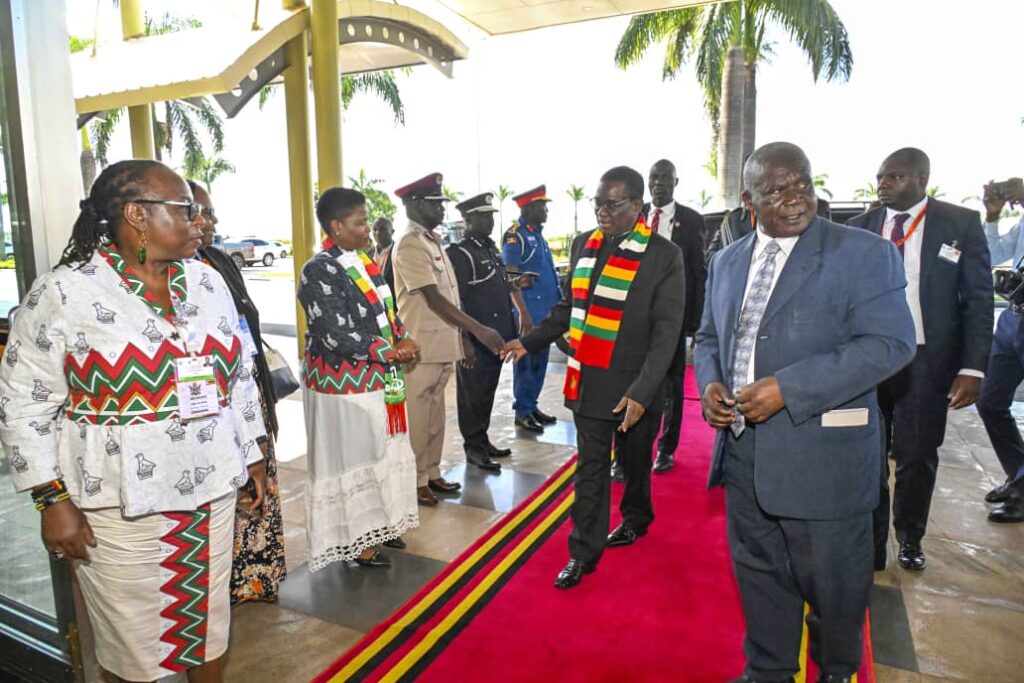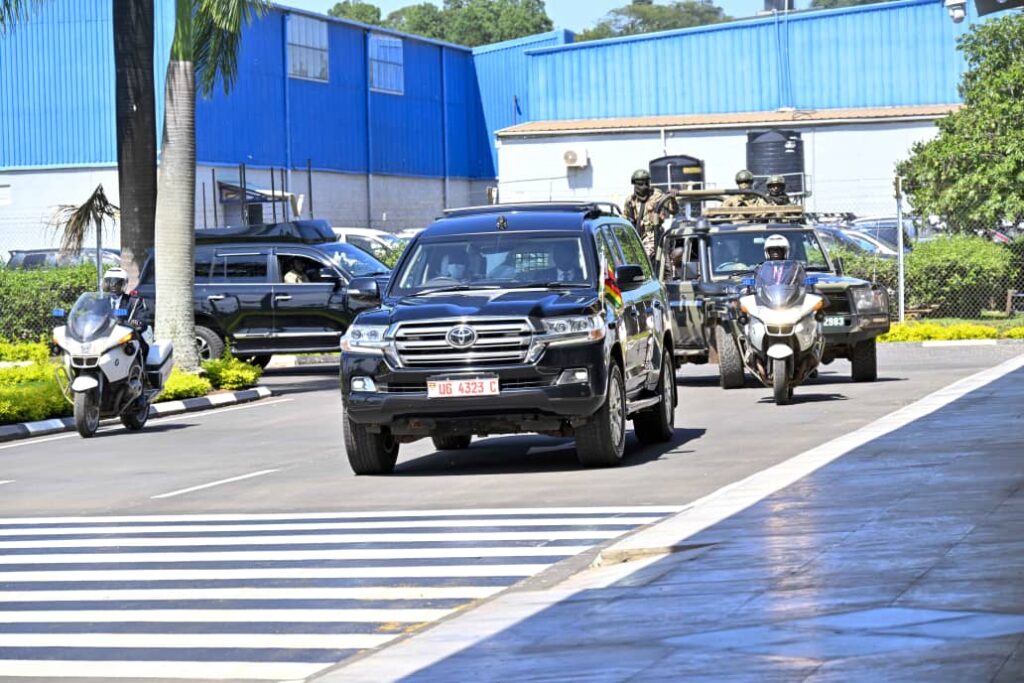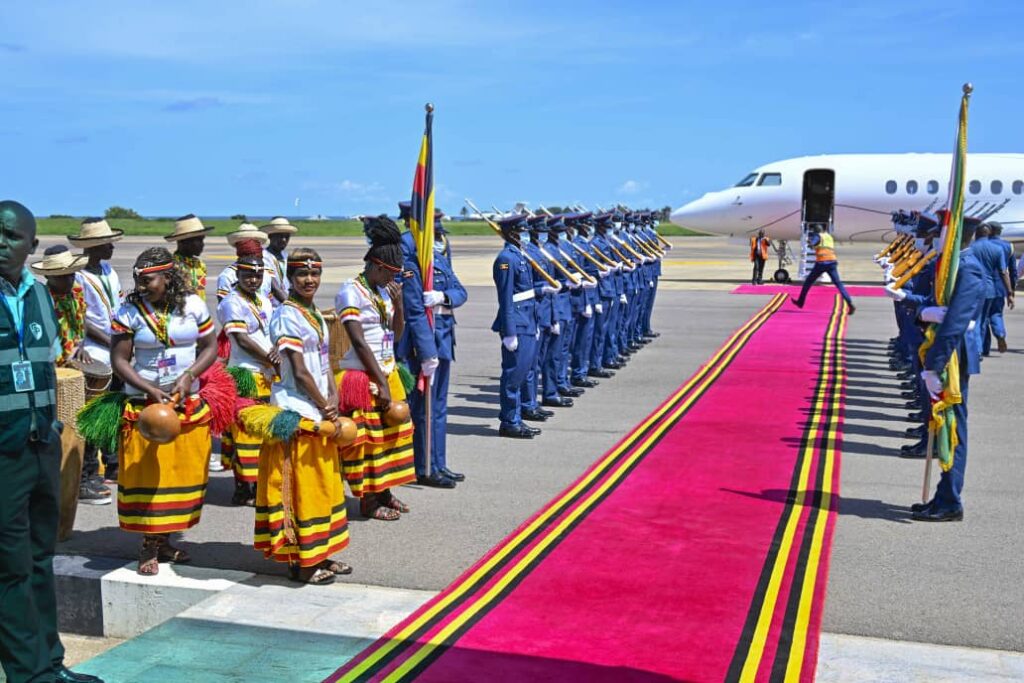
ENTEBBE.
President of the Republic of Zimbabwe, Emmerson Dambudzo Mnangagwa departed Uganda Wednesday evening after actively participating in the 11th Africa Regional Forum on Sustainable Development (ARFSD-11).
The forum, held at the Speke Resort Convention Centre Munyonyo, convened under the theme: “Driving Job Creation and Economic Growth through Sustainable, Inclusive, Science- and Evidence-Based Solutions for the 2030 Agenda and Agenda 2063”.
President Mnangagwa was seen off at Entebbe International Airport at by H.E. Winpeg Moyo who is the Ambassador of Zimbabwe to Uganda, Mr Wilson Muluri Mukasa, the Minister of Public Service, the Deputy Inspector General of Police James Ochaya, the Deputy Commissioner General of Prisons, Mr. Samuel Akena and Maj. Gen. David Isimbwa, the Deputy Commander of UPDF Air Force.
During the forum Mr Museveni called on African nations to take charge of their development agendas through home grown solutions and regional integration.

At the event, the President was in company of the First Lady and Minister of Education Janet Museveni and H.E Emmerson Dambudzo Mnangagwa, the President of the Republic of Zimbabwe.
“The solutions are with us,” President Museveni emphasized.
President Museveni highlighted that Uganda’s economy has developed rapidly, with or without foreign assistance.
He offered an in-depth reflection on the country’s economic history and transformation, tracing it back to the year 1900 when the British declared Uganda a protectorate after defeating local kings, noting that at that time, Uganda was a pre-capitalist traditional economy based on subsistence agriculture, livestock, artisanal trades (emyooga), fishing, and services such as traditional healing (kuragura).

The President mentioned that the economy operated largely on barter trade (okuchurika), with limited use of cowrie shells (ensiimbi) as currency.
By the time of independence in 1962, colonial authorities had built a small enclave economy; a limited island of modernity surrounded by widespread underdevelopment.
President Museveni explained that his government had to start from scratch, rehabilitating a broken economy while bringing the rest of the population into productive activity.